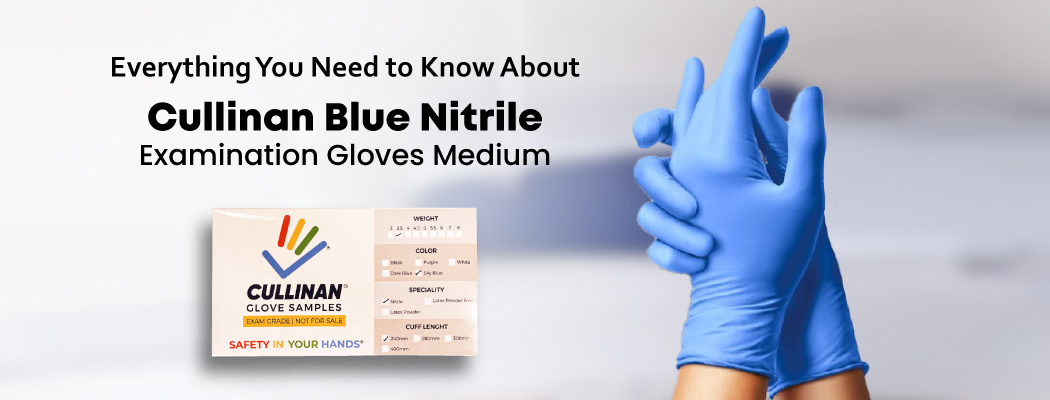To assist stop the transmission of infection during medical examinations, treatments, and surgeries, healthcare professionals use disposable Cullinan Powder Free Nitrile Gloves. They normally come in a variety of sizes to provide a good fit for varied hand sizes and are manufactured of latex, nitrile, or vinyl.
Examination gloves are made to act as a protective barrier between the hands of healthcare professionals and the body fluids, blood, and other infectious materials on the patient. They protect healthcare workers from exposure to potentially dangerous substances and stop the spread of infections from one person to another.
There are powdered and powder-free examination gloves available. Powder-free gloves are preferable in some healthcare settings due to worries about the possibility of allergic responses or respiratory irritation caused by the powder, whereas powdered gloves are coated with a fine powder to make them simpler to put on and take off.
Examination gloves are often a crucial component of infection control in healthcare settings and are frequently used by healthcare professionals to help stop the spread of infectious diseases.
Cullinan gloves are a crucial part of infection control in dentistry, and their use has several advantages.
- Reduced risk of infection: By putting a barrier between the dentist's hands and the patient's mouth, examination gloves serve to lower the risk of infection. This barrier aids in stopping the spread of contagious organisms like viruses and bacteria.
- Improved cleanliness: By avoiding the transmission of saliva, blood, and other bodily fluids from one patient to another, the use of examination gloves in dentistry enhances hygiene. By doing this, the chance of infection and cross-contamination is diminished.
- Protection for the dental professional: By avoiding direct contact with potentially infectious substances, examination gloves also offer protection for the dental professional. As a result, there is a lower chance of being exposed to infections and other dangerous things.
- Increased patient comfort: By lowering the risk of damage during dental operations, examination gloves can also increase patient comfort. Gloves have a cushioning effect that lessens friction and strain on the patient's mouth.
- Compliance with regulations: A number of regulatory organizations, including OSHA and CDC, demand that dentists use examination gloves. Dental offices must follow these laws to keep their personnel and clients in a clean and safe environment.
Overall, the usage of examination gloves is an essential part of infection control in dentistry, and both patients and dental practitioners can benefit from them. The risk of infection for both the dental practitioner and the patient can rise if examination gloves are not used during dental treatment. Direct oral contact during dental operations puts the dental practitioner and the patient at risk of exposure to bodily fluids like blood, saliva, and other bodily fluids that may contain bacteria and viruses.
The following are some possible hazards of not using examination gloves when receiving dental care:
- Increased risk of infection transmission: When a dental practitioner works on a patient without using gloves, there is a higher chance of infection transmission. The danger of infection transmission is increased if the dental professional's hands come into touch with the patient's saliva, blood, or other bodily fluids.
- Reduced hygiene: Not wearing examination gloves while receiving dental care can result in decreased hygiene and a higher risk of cross-contamination. During treatment, saliva, blood, and other body fluids may be exchanged between patients and between various areas of the mouth.
- Injury risk: Without gloves, the dentist is also more likely to suffer hand injuries from sharp dental tools or broken teeth.
- Regulation non-compliance: OSHA and CDC laws, which require dental practices to maintain a safe and hygienic environment for patients and employees, prohibit the use of examination gloves during dental treatment.
Overall, wearing examination gloves is an essential component of infection prevention in dentistry, and failing to do so can result in serious dangers for both the dental professional and the patient.










